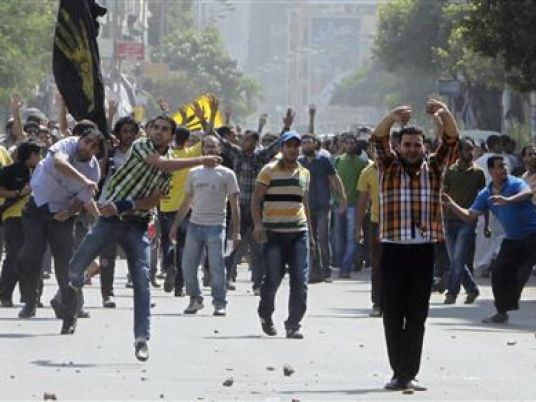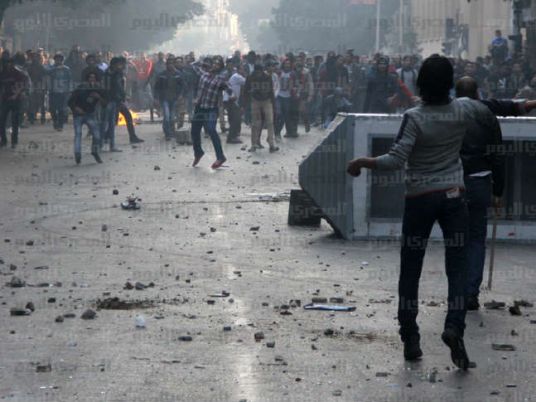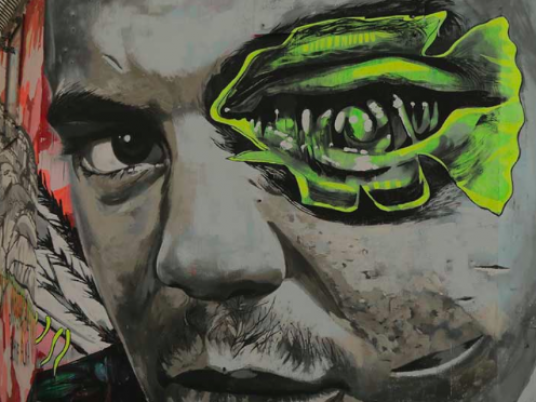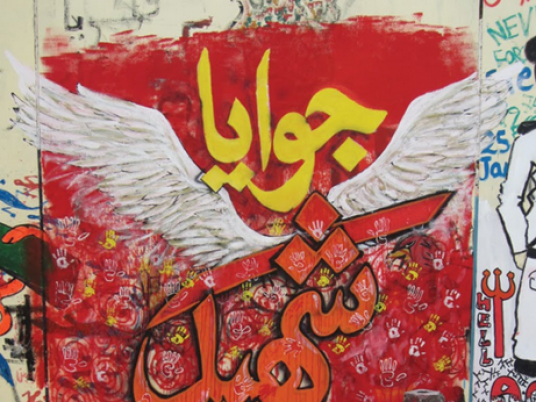As clashes between police and protesters continued for the sixth day on Mohamed Mahmoud Street near Tahrir Square, 64 of those arrested on allegations of inciting violence were ordered released, according to an Interior Ministry statement on Saturday.
Among the detainees, seven minors were released and handed over to their parents, according to judge Mohamed al-Attar of the Abdeen Criminal Court. The detainees were facing charges of illegal association, deliberately inflicting harm on government buildings and beating up security forces.
The statement claimed that there are 250 detainees from the Mohamed Mahmoud clashes, "13 of whom are fugitives from previous verdicts." According to the statement, the detainees have been interrogated by the prosecutor, who ordered the detention of 86 of them pending investigations.
The ministry of interior statement went on to describe policemen injuries during the clashes.
Violence on Mohamed Mahmoud has raged since Monday, when protesters took to the street to commemorate the death of over 50 protesters killed during clashes last year. The protesters, mostly young, say they are there to stand for the rights of their deceased friends, whose killers have not been held accountable.
The latest round of violence on Mohamed Mahmoud Street has claimed the life of Mohamed Gaber, a young activist with the April 6 Youth Movement.
Police have been throwing tear gas bombs to disperse the protesters, while also hurling Molotov cocktails and firing shotguns from the rooftops of surrounding buildings.
A recent Revolution Protection Law, passed by President Mohamed Morsy in the midst of a controversial constitutional declaration that allocates sweeping powers to him, ordered the retrial of "old regime" figures acquitted in cases of killing and wounding revolutionaries. It is unclear whether the new law is applicable to cases of violence against protesters by security forces after the toppling of President Hosni Mubarak and during the interim rule of the Supreme Council of the Armed Forces.
Meanwhile, Morsy's declaration did not halt street clashes.
"The Mohamed Mahmoud battle is the most heroic and sacrifice-laden chapter of the revolution. It represents the robust challenge to the rulers and all those who are implicated with them. It is the bitter struggle with power till the end. It is the heroes of Mohamed Mahmoud who ended the legitimacy of [the] SCAF and who continue throughout all channels to end oppression and the legitimacy of power," wrote activist and columnist Akram Ismail on his Facebook page Saturday. "They are tired of politics and they are dying in a battle that is essentially fought for the sake of politics and pluralism."




